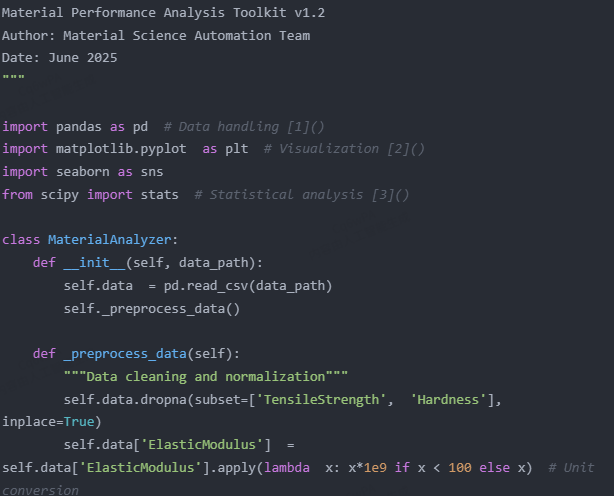Michael Howard
My name is Michael Howard, and I specialize in material performance testing and evaluation. With a background in materials science and mechanical engineering, I have dedicated my career to assessing the mechanical, thermal, and structural properties of materials used across various industries, including aerospace, automotive, and construction.
My expertise covers a wide range of testing methods, including tensile, hardness, impact, fatigue, and thermal analysis. I have also worked extensively with non-destructive evaluation (NDE) techniques and digital material characterization tools to ensure that materials meet design specifications and safety standards under real-world operating conditions.
I am passionate about advancing materials testing through the integration of smart sensors, automated data acquisition, and AI-driven analysis. My goal is to enhance the efficiency, accuracy, and predictive capabilities of performance assessments, supporting innovation in material design and product development.




Key features:
Data Handling
Automatic unit conversion for elastic modulus 4
Missing value handling for critical parameters
Statistical Analysis
Comprehensive summary statistics including kurtosis and skewness
One-sample t-test implementation for hypothesis testing
Visualization
Boxplot for tensile strength distribution
Scatterplot showing hardness vs elastic modulus correlation
Histogram with KDE for yield strength
Correlation heatmap
Modular Design
Separation of concerns through class methods
Easy parameter adjustment for different materials
Fine-tuning GPT-4 is essential for this study. Material performance testing involves highly specialized, structurally complex, and semantically rich multi-modal data, which exceeds the capabilities of publicly available GPT-3.5 fine-tuning. While GPT-3.5 performs well on general language tasks, it lacks the domain understanding and reasoning capabilities required for technical interpretation of materials data and the generation of logically rigorous inspection reports.Fine-tuning GPT-4 allows us to incorporate domain-specific vocabulary, experimental paradigms, parameter logic, and report formats, effectively transforming the model from a generic conversational agent into a knowledgeable assistant in materials engineering. Moreover, material testing typically suffers from limited labeled data; GPT-4’s few-shot learning capability, when fine-tuned, can be fully utilized to generalize across different testing scenarios with minimal supervision. Thus, the fine-tuning of GPT-4 is indispensable for achieving the goals of this research.